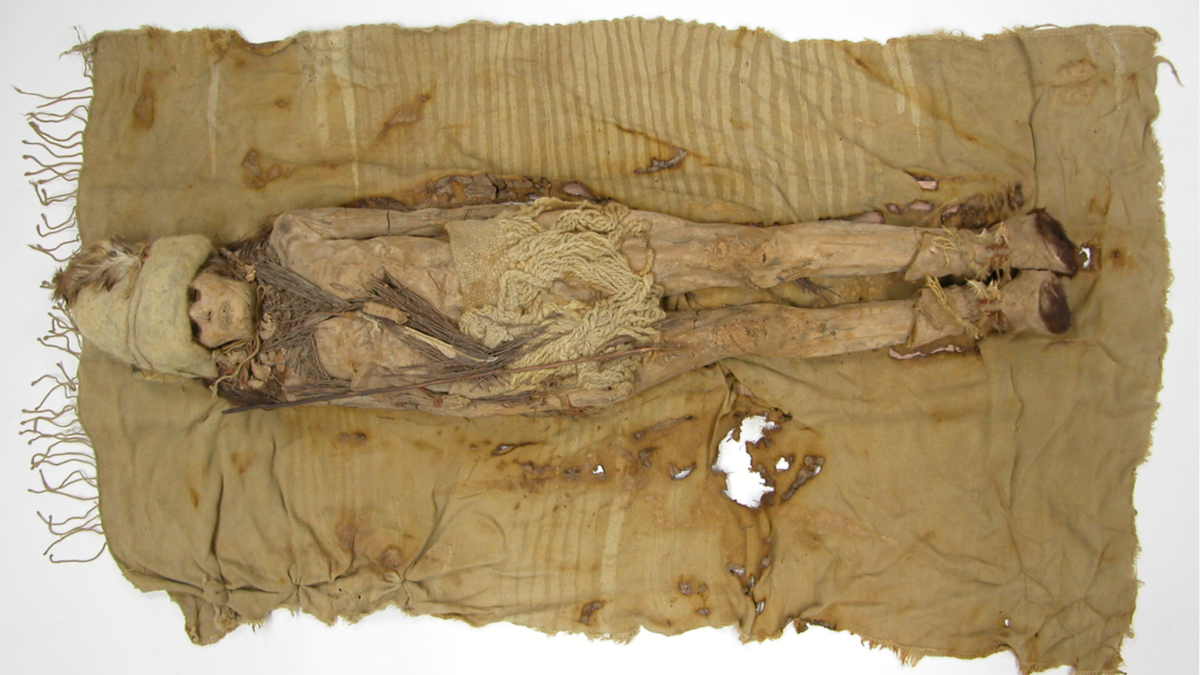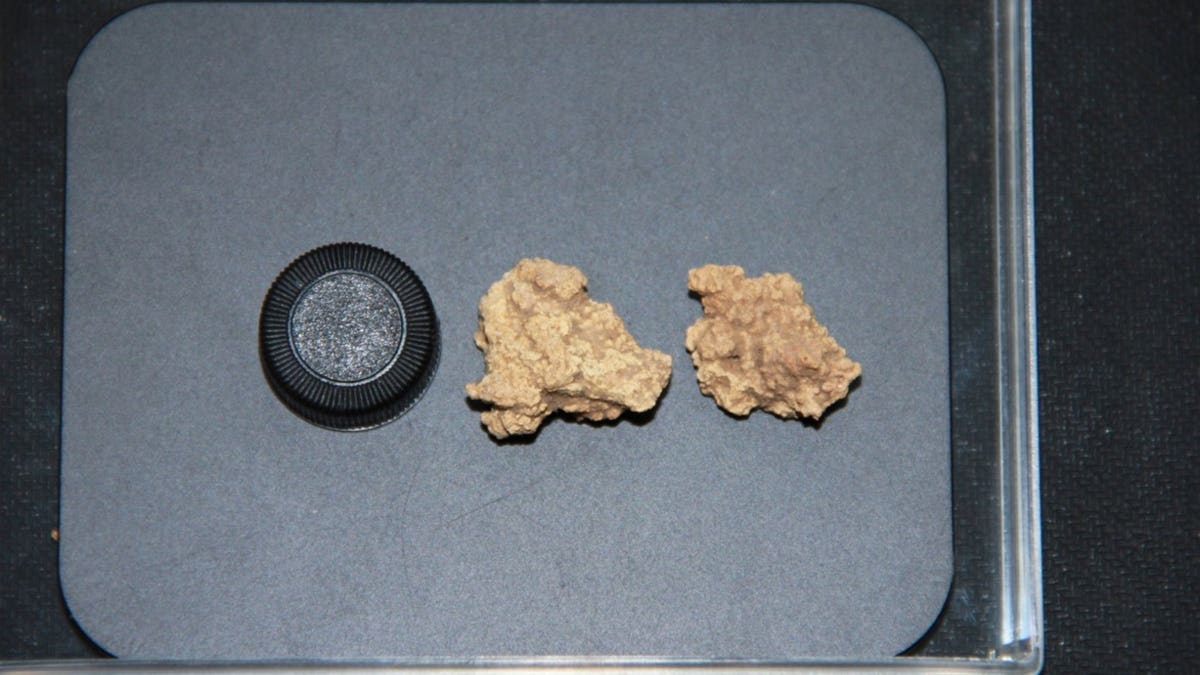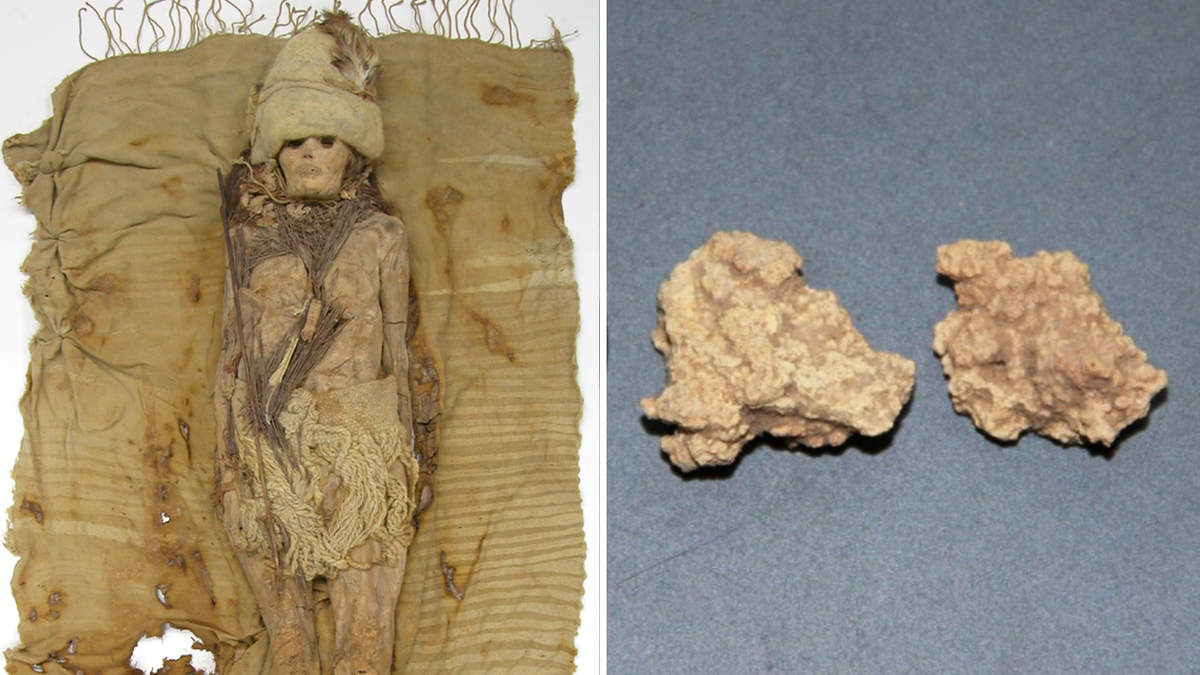Palestrina McCaffrey tells Fox News Digital why she tests mac and cheese recipes
Palestrina McCaffrey, an amateur chef who makes food content using the name "Little Remy Food" on YouTube, explains why she makes so many mac and cheese recipes.
Scientists retrieved ancient kefir cheese from Tarim Basin mummies dating back 3,500 years from the Xiaohe cemetery located in Xinjiang, Western China.
By analyzing the DNA of Bronze Aged cheese, scientists are able to provide insight into how the Xiaohe people lived and their interactions with animals.
Experts reconstructed the "fermentation microbial community" confirming the cheese was made using lactic acid bacteria and yeasts.
VICTORIAN-ERA BAR OF CHOCOLATE TO BE SOLD AT AUCTION
"This is an unprecedented study, allowing us to observe how a bacterium evolved over the past 3,000 years. Moreover, by examining dairy products, we’ve gained a clearer picture of ancient human life and their interactions with the world," FU Qiaomei, a paleogeneticist with the Chinese Academy of Sciences (CAS), located in Beijing, said in a press release.

Scientists retrieved ancient kefir cheese from Tarim Basin mummies dating back 3,500 years. (LI Wenying, Xinjiang Cultural Relics and Archaeology Institute)
The dairy samples were found "scattered around the necks of the mummies in the coffin," according to the study, which was published in the Cell journal.
Scientists were able to confirm the cheese was made using goat’s milk.
For more Lifestyle articles, visit foxnews.com/lifestyle
"Our results highlight the role of past human activities in shaping the evolution of human-related microbes, and such insights can, in turn, provide a better understanding of past human behaviors," said a scientist who was involved in the study.

The cheese made from goat's milk dates back 3,500 years. (YANG Yimin, University of Chinese Academy of Sciences, Beijing)
Kefir cheese is a soft, spreadable cheese made from fermented milk and a yeast and bacterial culture called kefir which separates milk into curds and whey, according to Kitchen Apothecary, a cooking blog.
The find suggest Tarim Basim people learned kefir production techniques from Eurasian steppe populations.
CLICK HERE TO SIGN UP FOR OUR LIFESTYLE NEWSLETTER
The study ais, "by tracking the evolution of a species that was propagated and consumed by humans over thousands of years, we were able to explore how human activities may impact microbial evolution through human-microbe interactions."

The cheese enabled scientists to find insights into how the Xiaohe people lived and their interaction with animals. The dairy samples were found "scattered around the necks of the mummies in the coffin," (YANG Yimin, University of Chinese Academy of Sciences, Beijing, LI Wenying, Xinjiang Cultural Relics and Archaeology Institute)
The scientists found that "making cheese through fermentation can extend the shelf life of dairy and alleviate the gastrointestinal symptoms caused by lactose intolerance."
CLICK HERE TO GET THE FOX NEWS APP
Fox News Digital reached out to the CAS for additional comment.





















